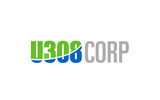The one-millionth electric vehicle ("EV") has recently hit the road - and the rate of EV sales is accelerating - over half of those e-cars were sold in the last 14 months.
Tesla delivered its first fully electric SUV yesterday: it has a range of 400km (250 miles), and in the "Ludicrous Mode" accelerates from 0 to 100km/h (60mph) in a staggering 3.2 seconds!
Apple is reported to be planning to ship its first EV - or is that i-Vehicle? - in 2019. This $600B behemoth is challenging the relatively much smaller conventional car manufacturers (eg Toyota's market cap is $24B) in the EV space - and is coming at vehicle manufacture from its electronics roots - a diametrically different approach to the conventional vehicle manufacturers that are shifting to all-electric vehicles.
Why does this the EV market matter to U3O8 Corp?
- It makes no sense for environmentally conscious drivers to charge their vehicles with electricity derived from polluting sources - most of these individuals would probably want to see their vehicles "gassed up" with clean electricity from renewable sources and/or nuclear that provides constant, "base-load" electricity that is generated irrespective of whether the sun is shining or the wind is blowing;
-
Battery technology - specifically some lithium-ion batteries, in which iron and vanadium phosphates are being used - do not overheat. The batteries that have iron and vanadium phosphate in their cathodes are used in GM's Spark, in cordless power tools by DeWalt and Black & Decker and by aircraft manufacturers Cessna and BAE Systems. Vanadium redox batteries ("VBR"s) are large capacity, industrial-scale units in which the main component is vanadium.
Battery manufacturing would be a potential market for some of U3O8 Corp's output when its deposits come on stream - vanadium from its Laguna Salada and Berlin deposits, as well as phosphate from Berlin.
The production milestone of one million EVs has been reached a little later than originally predicted, but don't let that detract from the important take-away - that demand for EVs is accelerating. Plug-in fully electric models accounted for two thirds of sales - double the number of hybrid plug-in vehicles. The USA was the biggest market with about one third of the EVs being sold there, with China and Japan together accounting for another third of the sales. The Nissan Leaf leads with a 20% market share, followed by the Chevy Volt at about 10%). Tesla EV's rank 3rd by market share, and the Toyota Prius, 4th.
According to the Wall Street Journal, Apple has set a "ship date" of 2019 for its EV. Whether the date is when the EV is planned to be available for delivery, or if it's the date on which the design is completed, remains to be clarified.
Sources: Canadian Manufacturing, Fierce Energy, Globe & Mail, EVObsession

